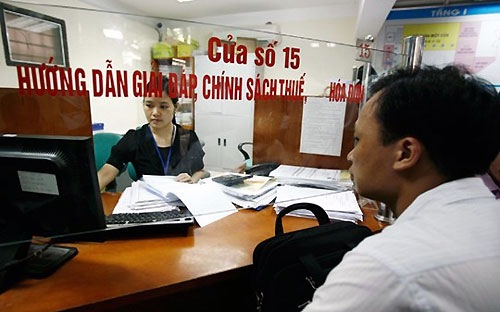Compared to other types of enterprises in Vietnam, joint-stock companies have a more flexible and diverse form of capital mobilization. Capital mobilization by joint-stock companies can be carried out in forms such as offering shares, issuing bonds, mobilizing capital from bank credit, etc.
.jpg)
Vietnam: Common forms of capital mobilization by joint stock companies (Illustration)
In practice, a joint stock company in Vietnam may mobilize capital in the following forms:
1. Issuing shares
Issuing shares is a characteristic form of capital mobilization by joint stock companies. According to the provisions of the Enterprise Law 2014, joint stock companies have the right to issue various types of shares to mobilize capital. According to Article 122 of the Enterprise Law 2014, joint stock companies may issue shares in the following forms:
- Offering shares to existing shareholders
Offering of shares to existing shareholders means the company’s increase of the amount of authorized shares and selling all of such shares to all shareholders according to their shares of the company.
- Public offering of shares
Public offering of shares is the offer of shares through the following methods:
+ Via mass media, including the Internet;
+ Offering shares to one hundred or more investors, excluding professional securities investors;
+ Offering to an undefined number of investors.
- Private placement of shares
Private placement of shares refers to the company offering shares to fewer than one hundred investors, excluding professional securities investors, and not using mass media or the Internet.
Note: A joint stock company in Vietnam must register the change in its charter capital within 10 days from the date of the completion of the share sale.
2. Issuing bonds
In essence, the owner of shares will become a shareholder - an owner of the company. If the joint stock company needs to increase its charter capital but does not want to increase the number of shareholders, it can choose to raise capital in the form of issuing bonds. Bondholders will become the "creditors" of the company.
Joint stock companies in Vietnam have the right to issue bonds, convertible bonds, and other types of bonds according to the provisions of Article 127 of the Enterprise Law 2014 and the company's charter in the following forms:
- Bonds: In essence, bondholders will become the creditors of the company. The company is obligated to pay the principal and interest to the bondholders when due. Bondholders will not have the right to vote on company matters.
- Convertible bonds: Convertible bonds are bonds that can be converted into shares at a pre-determined time in the future. Convertible bonds allow a joint stock company to borrow capital at a lower cost currently while having the option to convert that debt into equity in the future.
In addition to the two popular forms of capital mobilization mentioned above, joint stock companies can also mobilize capital through other methods such as bank credit.
Therefore, the ease of capital mobilization for joint stock companies stems from its "capital-oriented" nature. This advantage not only allows investors to be more flexible when choosing investment methods but also helps shareholders protect their ownership ratio. This is also an effective solution to address temporary financial difficulties for joint stock companies without admitting new shareholders.
Thuy Tram
 Article table of contents
Article table of contents










.Medium.png)
.Medium.png)
.Medium.png)
.Medium.png)
